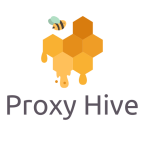Data center proxies are a cost-effective solution for web scraping, offering affordable options for extracting data from websites. These proxies act as intermediaries between devices and the internet, allowing users to hide their real IP addresses and access websites anonymously. They are particularly useful for web scraping, as they help bypass rate limits set by target websites and allow for reliable data mining.
Data center proxies come in different types, including proxy lists, rotating proxy pools, and smart proxy solutions. Each type offers its own advantages and considerations, making it important for users to choose the right option based on their specific needs. Proxy providers like WebShare and Bright Data offer data center proxies at varying costs, allowing developers to find a solution that fits their budget while enabling efficient web scraping.
Key Takeaways:
- Data center proxies are a cost-effective solution for web scraping.
- They help hide IP addresses and access websites anonymously.
- Data center proxies bypass rate limits and ensure reliable data mining.
- Proxy lists, rotating proxy pools, and smart proxy solutions are different types of data center proxies.
- Providers like WebShare and Bright Data offer affordable data center proxies.
Types of Proxy Solutions
When it comes to web scraping, there are three main types of proxy solutions available: proxy lists, rotating proxy pools, and smart proxy solutions. Each type has its own advantages and considerations, catering to different needs and budgets.
Proxy Lists: This type of solution provides users with a list of proxy IP addresses that they can integrate into their web scrapers. Users are responsible for building their own proxy rotation and management layers to switch between the proxies and handle any IP blocks that may occur. Proxy lists are a more DIY option, requiring users to handle the proxy rotation themselves.
Rotating Proxy Pools:
Eliminating the need for manual rotation, rotating proxy pools offer a more convenient solution for web scraping at scale. With this type of solution, users are provided with a single proxy endpoint that takes care of the rotation and selection of proxies on the provider’s end. Users pay based on the data bandwidth they use, making it a flexible and cost-effective option for large-scale web scraping projects.
Smart Proxy Solutions
As the newest type of proxy solution, smart proxy solutions offer a fully managed infrastructure that handles rotation, header selection, CAPTCHA detection, and more. These solutions simplify the web scraping process by automating various tasks, making them suitable for scraping difficult websites such as Google and Amazon. Providers like ScrapeOps and ScraperAPI offer smart proxy solutions with different pricing models, allowing users to choose the option that best fits their needs and budget.
Benefits of Using Proxies for Web Scraping
Using proxies for web scraping offers several advantages for businesses and developers. One of the key benefits is the ability to hide the user’s real IP address. By using a proxy, web scrapers can mask their identity, making it harder for websites to detect and block scraping activities. This ensures that the scraping process remains undetected and allows users to gather data without interruption.
Proxies also help bypass rate limits set by target websites. Many websites impose restrictions on the number of requests that can be made from a single IP address within a certain time period. By utilizing proxies, web scrapers can distribute their requests across multiple IP addresses, effectively bypassing these rate limits and enabling more reliable data mining.
Another benefit of using proxies for web scraping is the ability to perform geographical targeting. Proxies allow users to make requests from different locations, enabling region-specific scraping. This is particularly useful for businesses that require localized data for market research, competitive analysis, or localized advertising campaigns. By accessing websites from different geographical regions, businesses can gain valuable insights and tailor their strategies accordingly.
For high volume scraping, proxies provide a solution that ensures uninterrupted data extraction. Dedicated proxy pools allow users to make a large number of requests without the fear of being banned or blocked. These proxy pools distribute requests across multiple IP addresses, preventing any individual IP from being overloaded. This ensures that high volume scraping can be conducted efficiently, without any disruption to the process.
| Benefits of Using Proxies for Web Scraping |
|---|
| Hiding IP Address |
| Proxies enable users to hide their real IP addresses, making it harder for websites to detect and block scraping activities. |
| Rate Limits |
| Proxies help bypass rate limits set by target websites, allowing for more reliable data mining without interruption. |
| Reliable Data Mining |
| By utilizing proxies, web scrapers can distribute their requests across multiple IP addresses, ensuring the extraction of data is uninterrupted and reliable. |
| Geographical Targeting |
| Proxies allow users to make region-specific requests, providing businesses with localized data for market research and tailored strategies. |
| High Volume Scraping |
| Dedicated proxy pools enable users to make a large number of requests without the fear of being banned or blocked. |
Conclusion
In conclusion, utilizing proxy solutions is essential for efficient data extraction through web scraping. Data center proxies, such as proxy lists, rotating proxy pools, and smart proxy solutions, offer cost-effective options for developers to meet their specific needs and stay within their budget.
With proxy solutions provided by WebShare, Bright Data, Oxylabs, and ScrapeOps, businesses can ensure reliable web scraping and unlock valuable insights for their operations. Whether it’s lead generation, market research, brand protection, or machine learning, data center proxies play a crucial role in facilitating effective web scraping.
By leveraging proxy solutions, businesses can navigate through the challenges of web scraping, such as hiding IP addresses, bypassing rate limits, enabling geographical targeting, and conducting high volume scraping. These solutions provide a seamless data extraction process, enabling businesses to harness the power of web scraping for their growth and success.
FAQ
What are data center proxies?
Data center proxies are intermediaries between devices and the internet that allow users to hide their real IP addresses and access websites anonymously.
How are data center proxies useful for web scraping?
Data center proxies help bypass rate limits set by target websites and enable reliable data mining, making them ideal for efficient web scraping.
What are the different types of proxy solutions for web scraping?
There are three main types: proxy lists, rotating proxy pools, and smart proxy solutions.
What are proxy lists?
Proxy lists provide a list of proxy IP addresses that users can integrate into their web scrapers.
How do rotating proxy pools work?
Rotating proxy pools provide a single proxy endpoint that handles rotation and selection on the provider’s end, eliminating the need for manual rotation.
What are smart proxy solutions?
Smart proxy solutions offer a fully managed proxy infrastructure that handles rotation, header selection, CAPTCHA detection, and more.
What are the benefits of using proxies for web scraping?
Proxies hide the user’s real IP address, bypass rate limits, enable region-specific scraping, and ensure high volume scraping without the fear of being banned.
What are the different types of proxies offered by proxy providers?
Proxy providers offer datacenter, residential, and mobile proxies to cater to various web scraping needs.
Which proxy providers offer data center proxies?
Proxy providers like WebShare, Bright Data, Oxylabs, and ScrapeOps offer data center proxies for cost-effective and efficient web scraping.

